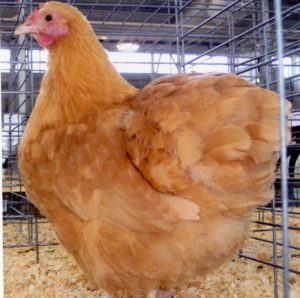 A new sound – clucks and cackles – will be heard next year at Greene County High School.
A new sound – clucks and cackles – will be heard next year at Greene County High School.
Students in the animal science class will raise chickens, both broilers and layers, to gain hands-on experience in livestock production. They’ll follow plans outlined in a proposal written by students in this year’s class. Students Robert Lenchanko and Samantha Menjivar presented a proposal they wrote with classmates Victoria Jones and Kyann Brown to the board of education last week. Vocational agriculture teacher Katie Akers filled in only a few details; it was a student-driven presentation.
Students will raise 30 broilers and 30 layers, each in its own 6 square-foot space in the unused greenhouse. The students researched breeds, calculated costs, designed the facility, including dealing with waste, and did market research. The broilers will be butchered by an inspected packer and they’ll be sold to the school’s Ram Restaurant. The eggs from the layers will also be sold to Ram Restaurant.
“The students truly did the work; I only facilitated. They are very driven young students with great potential. They deserve the credit,” Akers said after the presentation.
The animal science class is a two-trimester class. According to Akers, the production time for broilers is only as long as a trimester. Layers, though, live about two years. She said other classes would care for the layers during the “off” trimester, just as other classes care for the tilapia raised by the aquaculture class. Her experience is that students enjoy being engaged with their hands and having real-world opportunities, “even if fish and chickens aren’t interesting to them outside of the educational context.”
The layers will spend the summer at Akers’ Guthrie County farm, something she said she’s looking forward to. Also, FFA members will be able to “borrow” chickens to show at the county fair if they don’t have a place to raise chickens of their own.
Akers told the school board the main purpose of the project is educational, and that content matches the national Agriculture, Food and Natural Resources (AFNR) standards.
The board approved the project as a class lab experience, contingent on meeting any city zoning regulations regarding livestock.
